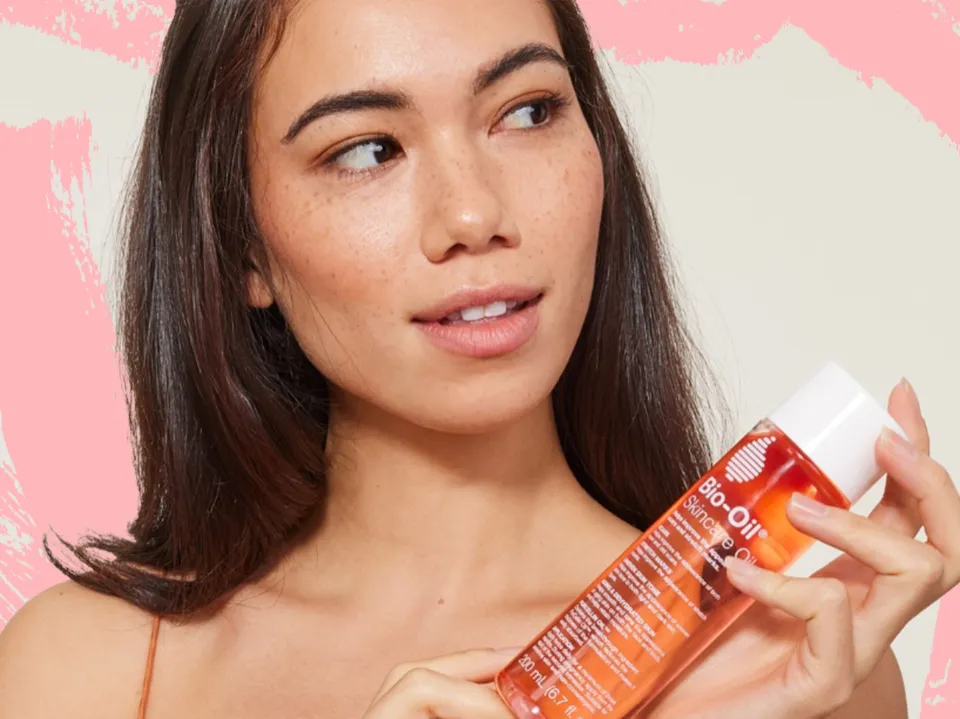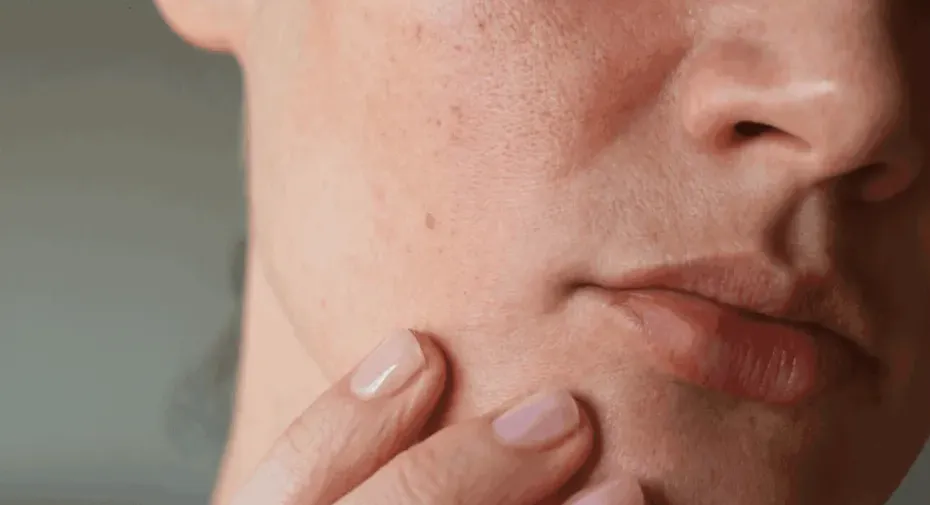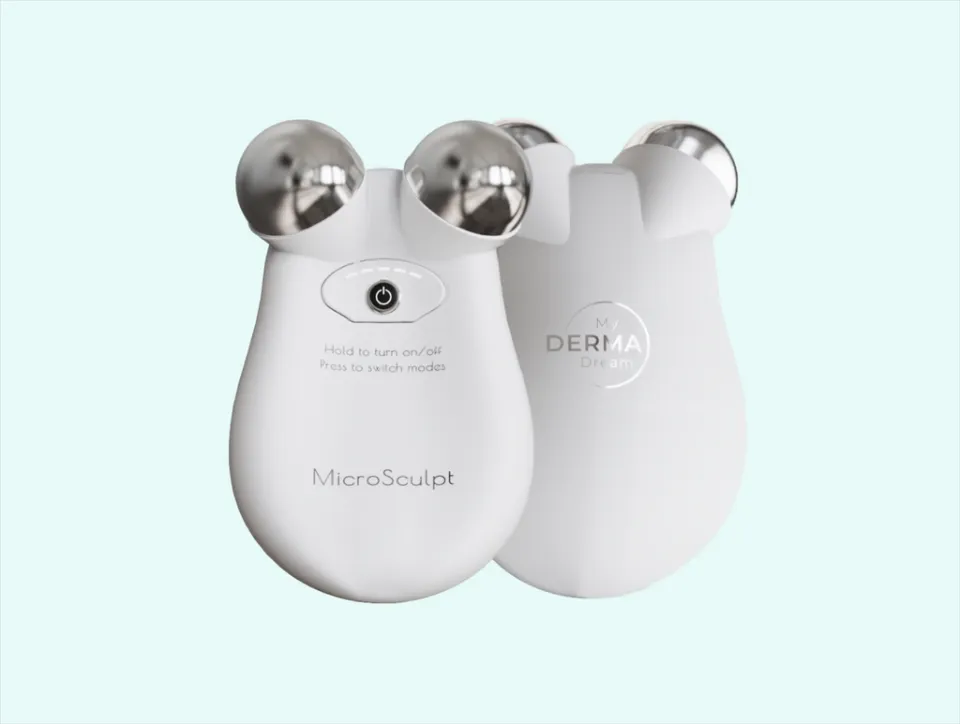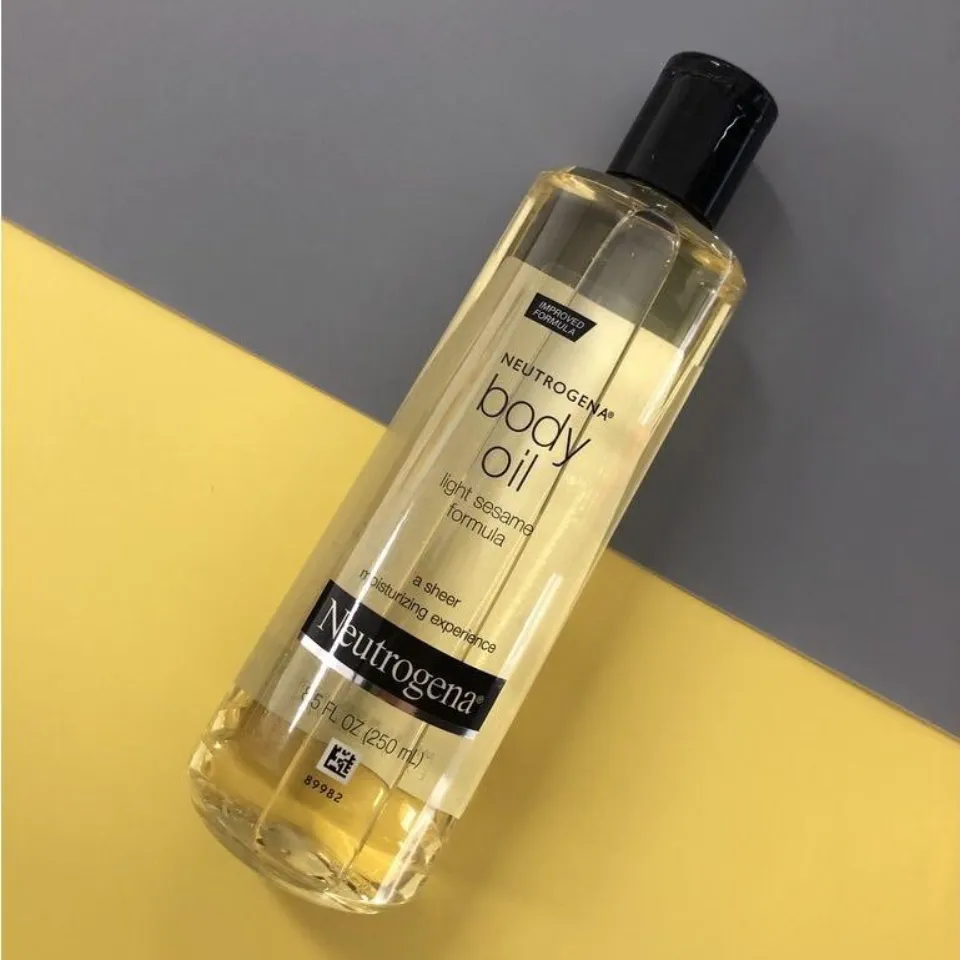Bio-Oil is a cosmetic oil that can reduce the appearance of acne scars. Additionally, it might lessen facial hyperpigmentation and smooth out wrinkles. But is bio oil good for face?
Using bio-oil for the face helps to keep it moisturized, and minimize wrinkles and dark spots. But does it have any negative effects?
Learn more about Bio-Oil’s uses and skin-related advantages by reading on.
What is Bio-Oil Used For?
Bio-Oil claims to help:
- Improve the appearance of new and old scars
- Improve the appearance of stretch marks
- Improve the appearance of hyperpigmentation (uneven skin tone) for both dark and light skin types
- Smooth and tone aging skin on the face and body
- Retain skin moisture
Is Bio Oil Good for Face?
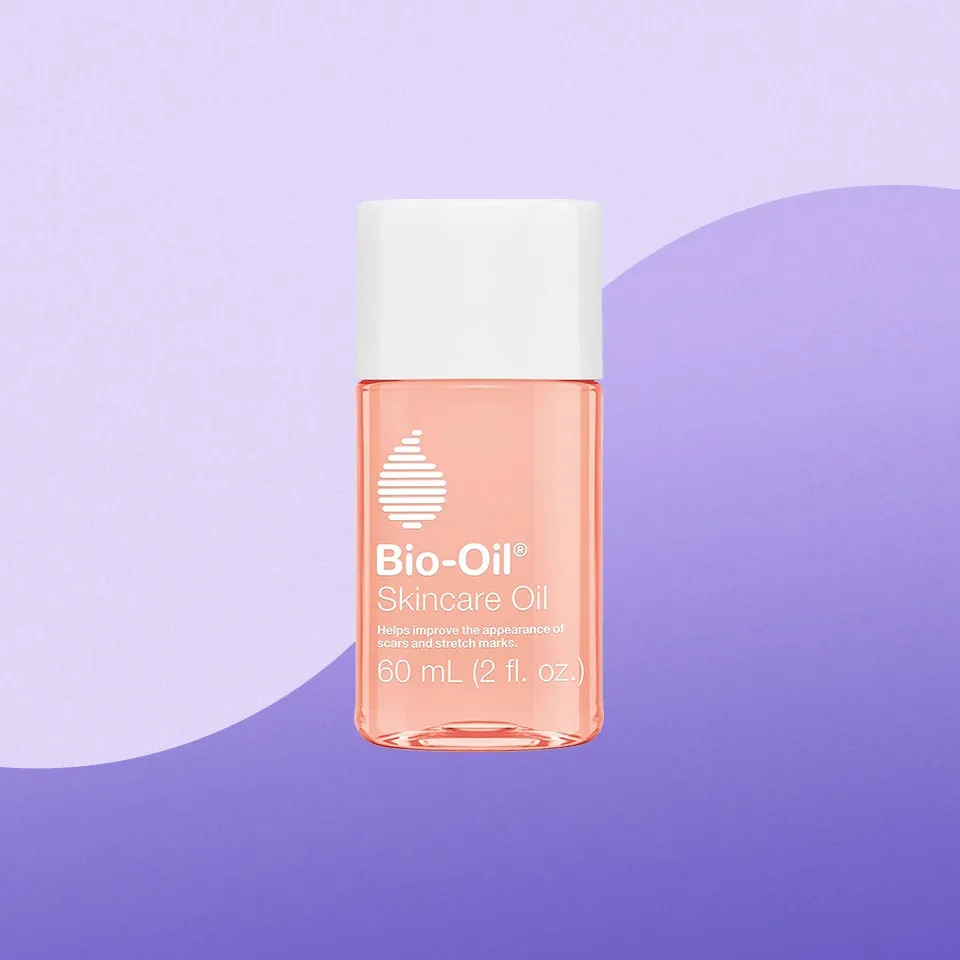
According to a 2018 study of 80 people with non-hypertrophic scars, In comparison to an untreated area, Bio-Oil demonstrated a 14 percent better reduction in scarring and striae (stretch marks).
Here are additional results from participants in the study:
- 93 percent said that Bio-Oil had a long-lasting soft and supple skin feeling
- 61 percent indicated that they felt the product improved their skin appearance
- 51 percent said that their scars and stretch marks looked less pronounced
- 17 percent indicated that the oil had no benefit
Bio-Oil can be used on the four primary categories of acne scars:
- Oockmarks
- Rolling scars
- Ice pick scars
- Boxcar scars
Related Reading:
- Is Sunflower Oil Good for Your Skin?
- Is Olive Oil Good for Your Face?
- Is Baby Oil Good for Your Face?
- Is Rosehip Oil Good for Face?
Benefits of Using Bio-Oil on the Face
Anecdotally and scientifically, Bio-Oil has been shown to be beneficial for the skin on the face.
For Wrinkles
Bio-Oil contains vitamin A, which can promote cell turnover. Retinol, which is known to treat acne and soften wrinkles, is derived from vitamin A. Bio-Oil uses plant-based oils because they are hydrating, which can plump the skin and lessen the visibility of wrinkles.
For Face Acne Scars
Bio-Oil is shown to be most effective when applied to new acne scars, though it may still help lighten older acne scars. New acne scars are those that are less than a year old.
In a 2012 study, more than 90% of participants reported that the color of their acne scars had improved, and 84% of the subjects reported improvements in the general health of their acne scars.
However, the Bio-Oil brand only conducted this study on 32 individuals, all of Chinese descent, and between the ages of 14 and 30. Additional study is required.
Acne scars are typically divided into four categories, and Bio-Oil can be used on all four:
- pockmark
- ice pick scars
- rolling scars
- boxcar scars
If your skin is broken, bleeding, or cracked, you shouldn’t use Bio-Oil.
Because of the vitamin A in the oil, the skin may be exfoliated and new skin cells may be induced. In doing so, the healing of scars is sped up.
Some studies have found that vitamin E helps scars look less noticeable. However, other studies say the opposite — that vitamin E can worsen the look of scarsTrusted Source.
For Dark Spots on the Face
Some studies show that Bio-Oil is effective at treating hyperpigmentation (dark spots) on the face caused by genetics or ultraviolet (UV) exposure.
A 2011 study conducted by the Bio-Oil company found that 86 percent of people using Bio-Oil for 12 weeks showed a “statistically significant improvement” in the appearance of uneven skin tone, and 71 percent of testers showed improvement in “mottled pigmentation on the face.”
Further investigation of the oil must be conducted independently.
For Skin Lightening
Bio-Oil has been shown to lighten scars. A 2012 clinical trial done by the manufacturer found that 90 percent of subjects experienced an improvement in scar color after using the product for 8 weeks.
The claim that Bio-Oil will actually lighten skin is not supported by any research, though.
All available research indicates that Bio-Oil can lighten scars, but scar tissue is different from other skin in this regard. Additional study is required.
For Oily Skin
Applying facial oil to skin that is already oily may seem counterproductive. But sometimes, skin appears oily because it actually doesn’t have enough oil, and the sebaceous glands overcompensate by producing too much.
On oily skin, you can try Bio-Oil, but jojoba oil, which resembles human sebum, might work better.
The oil was found to be nonacnegenic and noncomedogenic in a 2006 clinical trial run by the Bio-Oil company, which means it isn’t known to clog pores or cause acne. We require additional unbiased investigation.
Side Effects of Bio-Oil on Face
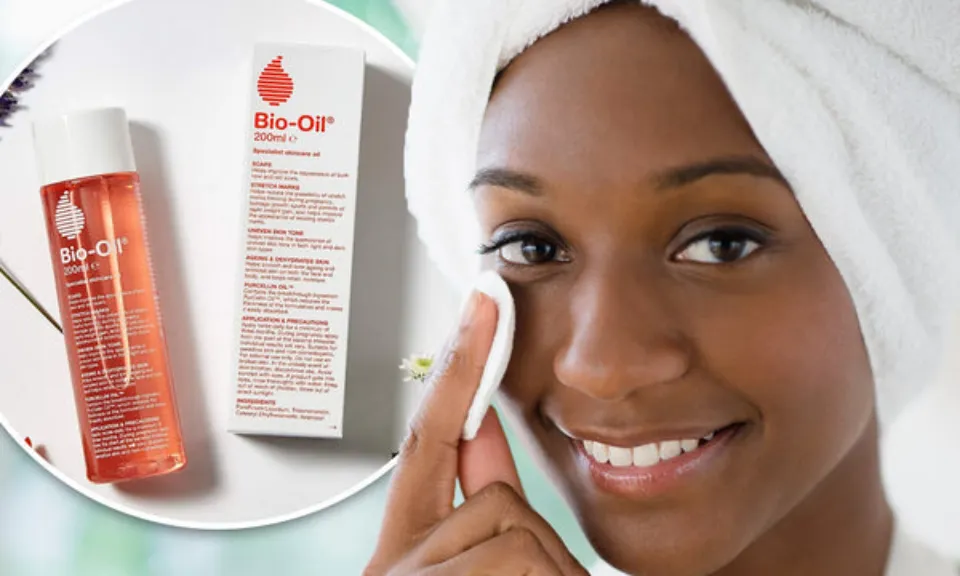
Bio-Oil is generally considered safe, though there are certain risks and side effects associated with the product. If your skin or scars are bleeding or cracked, avoid using it. The oil contains fragrance, which may be dangerous if consumed. Additionally, it ought never to be ingested.
Linalool, a fragrance ingredient, is a known allergenTrusted Source in many people and is found in Bio-Oil.
Avoid using Bio-Oil if you have an essential oil allergy or sensitivity. Before putting it to use for the first time, it is a good idea to perform a skin patch test. To do this, apply a small amount of product to your forearm and watch it for at least 30 minutes to see if anything happens.
How to Use Bio Oil on Face?
Bear in mind that Bio-Oil moisturizes and hydrates your face. Hence, make sure you apply this liquid in the following way:
- Washing and cleansing your face should come first. This will guarantee that your pores are clean of all dirt and grime.
- Dry your face using a soft towel while being gentle.
- Apply and massage in your usual facial cream afterward.
- Next, take a few drops of the Bio-Oil on your fingertips and gently dab it into your face. On your cheeks, forehead, nose, and chin, be sure to use the same technique.
We suggest using this product at least twice daily, once in the morning and once at night, for prompt results.
When to See a Doctor?
If your acne becomes painful, your skin is bleeding, or itching, you should visit a doctor. It’s possible that you’ll need to see a doctor for a prescription if you have cystic acne. If your acne is affecting your daily life, you should also visit a physician.
You should also visit a doctor if your acne scars are painful, broken, or bleeding.
Takeaway: Is Bio Oil Good for Face
Bio-oil contains skin-beneficial ingredients like vitamins lavender oil, rosemary oil, vitamins A and E. Using it daily is said to reduce dark spots, wrinkles, scars, and oily skin.
It is generally safe to use Bio-Oil as long as you are not allergic to any of its ingredients.
Read More:
- Can You Put Coconut Oil on Your Face?
- Disadvantages of Almond Oil on Face
- Argan Oil for Face
- Avocado Oil for Face
FAQs
Can You Leave Bio-Oil on Your Face Overnight?
You can leave Bio-Oil on your face overnight. Few studies have been done to demonstrate the effectiveness of doing this, but based on anecdotal evidence, people say they do it to stay more hydrated.
Is Bio Oil Good for Face Acne?
Yes, the product has been found to work “very well” on post-acne scarring and redness.
Does Bio Oil Darken Skin?
The skin does not become darker when you apply oil to it.

